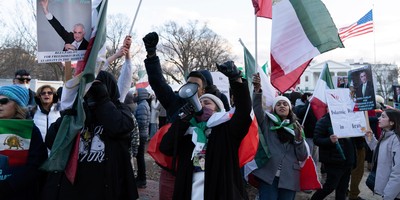This week’s decision by the U.S. Supreme Court to let stand a lower court ruling permitting the city of New York to block churches from meeting for worship services in empty public schools on weekends is profoundly troubling. Not just in its implications for religious freedom, but for what it says about what we are teaching the children who meet in those schools during the week.
Because the lower court ruling (from the U.S. Court of Appeals for the 2nd Circuit) stands in square opposition to the rulings of other federal appeals courts around the country on similar cases, its decision effectively creates two constitutions – one for congregations in New York, Connecticut, and Vermont, another for the rest of the country. How much equal access your church may have to public buildings depends entirely on the state in which you live.
More troubling, though, is that the Second Circuit’s decision ignores the presumption – built into the DNA of our nation – that religious freedom needs to be protected. That DNA is now the subject of substantial “genetic engineering” in America’s current legal and popular culture, and this case – Bronx Household of Faith v. the Board of Education of the City of New York – is an excellent example.
For nearly 40 years, Jack Roberts and Robert Hall, co-pastors of Bronx Household of Faith, have been an intimate part of their inner-city neighborhood, six subway stops north of Yankee Stadium. They’ve watched the ethnic and cultural tides come and go – as Jews made way for the Irish, the Irish for the Italians, the Italians for African-Americans and Hispanics. Between them, their families have raised 18 children in century-old frame houses, sharing one mostly concrete backyard and the daily joys and challenges of bringing Christ to an area that cab drivers and even police would prefer not to drive through.
Recommended
Across those nearly four decades, they’ve earned and re-earned the respect of their ever- changing neighbors – so much so that, in the early 1990s, local officials approached Hall and Roberts about launching some community after-school programs for children in the increasingly volatile neighborhood. The co-pastors offered a combination of Bible stories and recreation, and both school officials and parents gave the okay.
Not long afterward, the pastors approached school administrators, asking permission for their growing home church to meet in the school auditorium on Sundays while they saved and worked to build a meeting place of their own. Local principals readily agreed, with one caveat: Department of Education regulations opened school facilities to all cultural and civic events and activities “pertaining to the welfare of the community” – except worship services.
The pastors, though, felt a church should be honest about being a church. They identified their purpose for meeting as “worship,” turned in an application, and got a fast, firm “no” back from the city. That was the beginning of a reluctant lawsuit aimed not at collecting money, but at establishing the right of religious groups to enjoy the same access to public facilities that other organizations are so freely given.
Currently, nearly 60 churches and synagogues are meeting in New York City public schools … in many cases, not because they want to, but because space and/or funds are not yet available for them to meet elsewhere. Many, like Bronx Household of Faith, have already made a tangible, visible impact on their neighborhoods – ministering love and compassion to children, refugees, shut-ins, the poor and homeless. In not a few of those neighborhoods, diminishing crime statistics give evidence of the good influence these congregations exert on their surroundings.
And yet: the Department of Education is adamant that the churches must go. Even though the congregations, just like thousands of other community groups, meet on weekends, when classes aren’t in session, city officials seem to live in mortal dread of what inferences young minds might draw from the knowledge that some of these people actually sing hymns and pray in their school cafeteria. In the words of Jordan Lorence, the Alliance Defense Fund attorney who has defended Bronx Household of Faith for more than 16 years, “It’s like faith is some kind of asbestos that will somehow poison the students.”
What children are more likely to perceive – especially those who attend these in-school services with their own families – is the very confusing message that this faith that sustains so many folks and brings them together to do good things is something that, for some reason, our schools and our government want people to avoid. And that these weekend visitors – old and young, families and singles, a mixture of races and dress styles and accents – are to be treated by different rules than other people in the neighborhood.
If the children’s curiosity is sufficiently aroused, they may discover that these ostracized people believe in a God who urges His own to treat others unselfishly, with kindness and generosity, humility and forgiveness. They may even recognize these “church-goers” as people who still cherish freedom enough to stand for it, against powerful forces, in the face of decades of frustrating legal setbacks.
If they grasp these things, they will understand more than many, many of those who have passed before them through our government-run schools, and who – like too many of those who control public education today – still have so much to learn.

























Join the conversation as a VIP Member